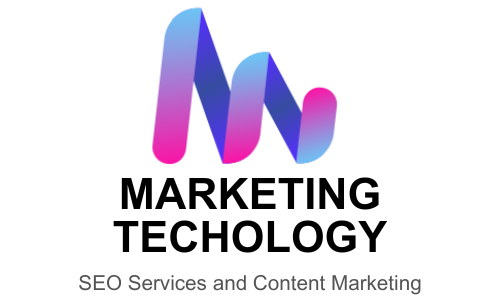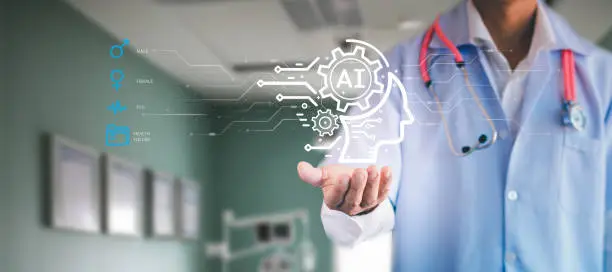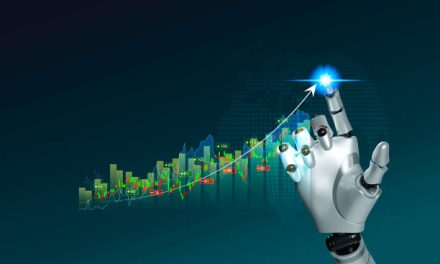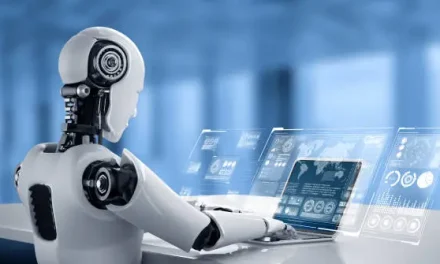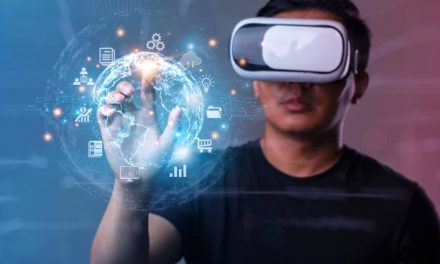Artificial Intelligence (AI) is revolutionizing industries across the globe, and healthcare is no exception. AI has the potential to drastically improve patient care, enhance diagnostic accuracy, and streamline operations within healthcare facilities. As technology advances, more healthcare professionals are turning to AI to assist in managing large datasets, automating time-consuming processes, and delivering more personalized treatments. This article will explore the top 10 benefits of artificial intelligence in healthcare, showcasing how AI is transforming the industry for the better.
The Role of Artificial Intelligence in Healthcare
Artificial intelligence in healthcare refers to the application of machine learning algorithms, deep learning, and other advanced AI technologies to improve healthcare services. AI plays a vital role in various aspects of the healthcare ecosystem, from diagnostics and personalized treatment plans to hospital management and drug discovery. By processing vast amounts of data quickly and accurately, AI tools can help medical professionals make informed decisions and deliver better patient outcomes.

AI is not about replacing healthcare professionals, but rather supporting them. It provides tools that help clinicians make more accurate decisions, reduce human error, and ultimately improve the overall efficiency of healthcare services. AI’s role is growing as it continues to evolve, offering promising solutions to challenges like rising healthcare costs, the need for faster diagnoses, and the demand for personalized care.
10 Benefits of Artificial Intelligence (AI) in Healthcare
Improved Diagnostic Accuracy
One of the most significant benefits of artificial intelligence in healthcare is its ability to enhance diagnostic accuracy. AI algorithms can analyze medical images, such as X-rays, MRIs, and CT scans, with remarkable precision, often detecting abnormalities that may be missed by the human eye. This helps healthcare providers diagnose conditions such as cancer, heart disease, and neurological disorders in their early stages, leading to better patient outcomes.
Personalized Treatment Plans
AI allows healthcare professionals to tailor treatment plans to individual patients based on their genetic data, medical history, and lifestyle factors. By leveraging AI’s ability to analyze complex data, doctors can provide more targeted treatments that maximize effectiveness and minimize side effects. Personalized medicine is becoming a key area where AI is making a real difference in patient care.
Faster Drug Discovery
Drug discovery is a time-consuming and expensive process. AI speeds up this process by analyzing vast amounts of scientific data and predicting how new compounds will behave in the human body. By identifying promising drug candidates faster, AI can shorten development timelines, reduce costs, and bring life-saving medications to market more quickly.
Efficiency in Administrative Tasks

AI is also improving healthcare efficiency by automating administrative tasks such as scheduling, billing, and patient record management. By freeing up time for healthcare workers, AI allows them to focus more on direct patient care, improving productivity and reducing the overall cost of healthcare services.
Enhanced Patient Monitoring
AI-driven wearable devices and health monitoring tools can track vital signs, medication adherence, and even emotional well-being. By continuously monitoring patients, especially those with chronic conditions, AI can provide real-time insights that alert healthcare providers to potential problems before they become critical. This proactive approach helps prevent hospital readmissions and improves long-term health outcomes.
Robotic Surgery Assistance
AI-powered robotic surgery systems are enhancing the precision of complex surgeries. These systems assist surgeons by providing detailed visualizations and real-time data, reducing human error and improving surgical outcomes. Additionally, robotic surgeries tend to involve smaller incisions, which leads to faster recovery times and less pain for patients.
Predictive Analytics for Disease Prevention
AI is invaluable in predictive analytics, helping healthcare providers anticipate and prevent potential health issues. By analyzing a patient’s data, such as medical history, lifestyle habits, and genetic predisposition, AI can identify individuals at risk for certain diseases, allowing for early intervention and preventive measures.
AI Chatbots and Virtual Health Assistants
AI-powered chatbots and virtual health assistants are increasingly being used to interact with patients, providing them with instant medical advice, scheduling appointments, and reminding them about medication. These tools can reduce the burden on healthcare staff while providing patients with accessible and timely information, improving the overall patient experience.
Optimized Hospital Operations

AI is helping healthcare facilities run more efficiently by optimizing hospital operations. AI systems can predict patient admission rates, manage staff scheduling, and optimize resource allocation. This leads to reduced wait times, improved patient satisfaction, and better resource utilization, making healthcare delivery more effective and efficient.
Reducing Healthcare Costs
One of the most important advantages of AI is its ability to reduce healthcare costs. By improving diagnostic accuracy, streamlining administrative tasks, and optimizing hospital operations, AI can significantly lower the cost of healthcare. Additionally, AI can help prevent costly complications by allowing for early detection and intervention, reducing the need for expensive treatments down the line.
Conclusion
In conclusion, artificial intelligence is transforming the healthcare industry by providing innovative solutions that enhance patient care, improve efficiency, and reduce costs. With its ability to analyze vast amounts of data and assist healthcare providers in making better decisions, AI is poised to revolutionize healthcare practices. The 10 benefits of artificial intelligence in healthcare are undeniable, from improving diagnostics to enabling personalized treatments and faster drug discovery. As AI technology continues to evolve, its impact on healthcare will only grow stronger, offering new opportunities for better health outcomes and more efficient healthcare systems.
If you are interested in learning more about how AI can help your healthcare business, consider reaching out to Marketing Techology for SEO services and content marketing. We specialize in helping companies in the healthcare industry boost their online presence and achieve business growth through data-driven marketing strategies.
Frequently Asked Questions
Is AI safe in healthcare?
When used properly, AI in healthcare is safe and effective. However, it must undergo rigorous testing, validation, and continuous monitoring to ensure patient safety and privacy. Regulatory bodies also play an essential role in overseeing AI applications to maintain safety standards.
How accurate is AI in diagnosing medical conditions?
AI has shown to be highly accurate in diagnosing various conditions, sometimes even outperforming human doctors in specific areas such as radiology. However, AI systems should always be used as a supportive tool alongside medical professionals rather than as a sole decision-maker.
Can AI replace doctors and healthcare professionals?
AI is not meant to replace doctors or healthcare professionals. Rather, it is designed to assist them by providing data-driven insights, improving diagnostic accuracy, and enhancing treatment options. The role of healthcare professionals remains crucial in interpreting AI results and providing personalized care.
